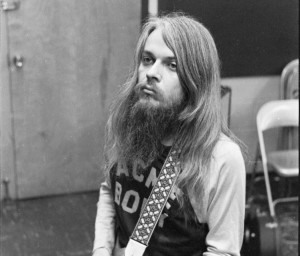 The sad march of death of influential rock ’n’ roll figures continues with the death of Leon Russell on Sunday at 74.
The sad march of death of influential rock ’n’ roll figures continues with the death of Leon Russell on Sunday at 74.
Most prominent in the spectacular “Mad Dogs and Englishmen” tour of Joe Cocker and musical director at George Harrison’s Bangladesh benefit concert, his roots stretch back to pop songs in the 60s, when he was part of Phil Spector’s legendary Wrecking Crew band.
He remained active over the years, if not always as visible, with continual touring and albums that culminated with the one he made with Elton John in 2010, “The Union.” He was inducted into the Rock and Roll and Songwriters halls of fame the following year.
He was quite a songwriter, cowriting two hits for Gary Lewis and The Playboys in the mid-60s, “She’s Just My Style” and “Everybody Loves a Clown.” By the end of the 60s, he wrote “Delta Lady” for Joe Cocker, and another of his co0written compositions “Superstar” was made a hit by the Carpenters.
“I started writing rather late in the game,” the Oklahoma-born Russell told me in a 1992 interview. “I was fascinated about the story about how Bob Dylan, for `Nashville Skyline,’ wrote between takes. So I’d try to sing new songs off the top of my head. I had rather less than spectacular success on that. But a lot of my songs were done that way.”
At the point when he had his most rock clout, in the early 70s, appearing as part of George Harrison’s Concert for Bangladesh with superstars Eric Clapton, Harrison and Dylan, he got his chance to watch Dylan’s songwriting in action.
![]()
“He was in New York, and I said, `If I bring a band up there, can I just play some changes, and you write songs to them?’ ” Russell recalled. “We would play something; he’d walk around the room for 15 minutes, and that’s how he wrote `Watching the River Flow’ and `When I Paint My Masterpiece.’ ”
Russell, a multi-instrumentalist who has studied piano since he was 3, was so crazy for rock ‘n’ roll as a youth in Tulsa that he lied about his age to play the clubs.
When he learned Jerry Lee Lewis was coming to town, “I made sure my band knew everything he ever put out,” he said. “He hired the band on the spot. It was the first time I ever went out on the road.”
Following that experience, Russell moved to Los Angeles in 1958 and became a sought-after session man who played keyboards on most of Phil Spector’s string of hits under the name Russell Bridges.
Russell also played on such wide-ranging ’60s hits as Bob Lind’s “Elusive Butterfly,” Herb Alpert’s “A Taste of Honey” and the Byrds’ “Mr. Tambourine Man.” In addition to writing and arranging for Gary Lewis and the Playboys, he was a member of the Shindogs, the house band on TV’s “Shindig.”
His career changed when he began writing songs in collaboration with guitarist Marc Benno, which led to the influential “Asylum Choir” album. “By the time I did my first `Leon Russell’ album [in 1970], I had written 15 songs in my life.”
That album came about the time he took the helm of Joe Cocker’s band for the riotous “Mad Dogs and Englishmen” tour.
“He asked me to help him out, and I started hiring all my friends, all the people I knew,” Russell said. “The crowd got bigger and bigger, to the point where we had as many as 40 to 45 people on the road.”
The tour produced a hit album, a movie and the Top 10 single “The Letter.” And it made Russell, listed as “The Master of Time and Space,” a star.
Still, he spent a lot of time writing for others.
“I intended to write the kind of songs Ray Charles and Frank Sinatra could both sing. Ray Charles, when they gave `Song for You’ to him, said he didn’t like to record things that had been recorded before and sounded like him, because he thought it would look like stealing.”
Still, “A Song for You” was recorded more than 135 times, although it has yet to be a big hit; likewise “This Masquerade” was recorded more than 50 times before George Benson made it a hit in 1976.
“Words have been the most difficult thing for me,” Russell said. “Melodies have been the easiest for me; I have more than enough melodies to go around.”